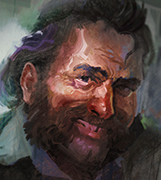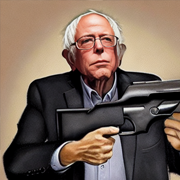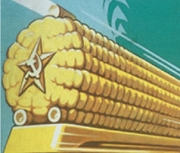|
What is the most powerful flying bug? This poll is closed. |
|||
|---|---|---|---|
| 🦋 |
|
15 | 3.71% |
| 🦇 |
|
115 | 28.47% |
| 🪰 |
|
12 | 2.97% |
| 🐦 |
|
67 | 16.58% |
| dragonfly |
|
94 | 23.27% |
| 🦟 |
|
14 | 3.47% |
| 🐝 |
|
87 | 21.53% |
| Total: | 404 votes | ||
|
January 6 Survivor posted:I'm glad our batch of dumbass failsons think that playing all sides is how you can diplomatically succeed but maybe France would have an easier time acting as a bridge between NATO and Russia if we hadn't loving done so much dumb bullshit to make them our enemies in those last few years. The thing is we are making relatively good money at the moment selling weapon systems (even if i will never have faith in India buying anything, those fuckers like to play hard to get) and our allies hosed us over a few billion dollars contract with Australia because of their Sinophobic bullshit. I would blame our current behavior more on "elite panic" than on any form of "strategy" Toplowtech has issued a correction as of 09:43 on May 20, 2024 |
|
|
|

|
| # ? Jun 12, 2024 23:52 |
|
Ghost Leviathan posted:We really need a big thing about how Nazi Germany was a corporate state to loving Shadowrun levels. President Dunkelzelensky
|
|
|
|
great long post for the new page. dk2m posted:Schmitt's core study was in his legalist doctrine - he criticized liberalism on a jurisprudence basis. It's worth it to note that fascism is a rejection and criticism of classical liberalism, though he by no means is the first and comes from a long line of thinkers.
|
|
|
|
You could say that Big Steel paid for the Nazis to Big Steal the 1933 election
|
|
|
|
Officer Sandvich posted:Before the big fight: just caught the highlights, seemed like a good fight!
|
|
|
|
Nix Panicus posted:One of the fun inherent contradictions of liberalism is that because it has no greater organizing principle for the people, once the liberal elite summons a horde of fascists to protect and expand its influence there is no inherent defense against the fascists just kinda taking over. Its an inevitable betrayal anyone can see coming but the cycle is doomed to repeat because its the only move they have in response to any serious threat
|
|
|
|
I think you would appreciate All the Kingdoms of the World: On Radical Religious Alternatives to Liberalism, because it shows how liberalism creates the crisis in legitimacy where Islamism, Liberation Theology and Integralism emerge. You can see the mythical strain of Fascism as similar to this, Himmler was obsessed with creating some sort of church, and there was that Nazi created Lutheran denomination. According to a common narrative, the twentieth century spelled the end of faith-infused political movements. Their ideologies, like Catholic integralism, would soon be forgotten. Humans were finally learning to keep religion out of politics. Or were we? In the twenty-first century, nations as diverse as Russia, India, Poland, and Turkey have seen a revival of religious politics, nand many religious movements in other countries have proved similarly resilient. A new generation of political theologians passionately reformulate ancient religious doctrines to revolutionize modern political life. They insist that states recognize the true religion, and they reject modern liberal ideals of universal religious freedom and church-state separation. In this book, philosopher Kevin Vallier explores these new doctrines, not as lurid oddities but as though they might be true. The anti-liberal doctrine known as Catholic integralism serves as Vallier's test case. Yet his approach naturally extends to similar ideologies within Chinese Confucianism and Sunni Islam. Vallier treats anti-liberal thinkers with the respect that liberals seldom afford them and offers more moderate skeptics of liberalism a clear account of the alternatives. Many liberals, by contrast, will find these doctrines frightening and strange but of enduring interest. Vallier invites all his readers on a unique intellectual adventure, encouraging them to explore unfamiliar ideals through the lenses of theology, philosophy, politics, economics, and history.
|
|
|
|
Cerebral Bore posted:hate to break it to you, but just because you have a reason for your actions doesn't necessarily make your actions rational what is rationality when talking about politics?
|
|
|
|
Cerebral Bore posted:motherfuckers running the country keep on screaming about how war and death is pure and noble and how they want it so and try to shape their entire society around this concept, but actually that's just a smokescreen for their real plans for rationally saving capitalism shut up you dumbass
|
|
|
|
Kyiv expects to receive its first F-16 fighter jets from its Western allies in June-July
|
|
|
|
crepeface posted:just caught the highlights, seemed like a good fight! Was a great fight,those dudes needed a win
|
|
|
|
boxing ftw
|
|
|
|
gradenko_2000 posted:excellent post
|
|
|
|
Fascism and liberalism are modes of rule from capitalism. I don't recall who actually figured this notion in liberalism, but somebody suddenly had finally realized this insight there and started "actually capitalism doesn't need democratic notions and the rule of law at all" and got the academic establishment quite in a bother. No news for Marxists, of course. What gives the impression of fascism having the helm when it "takes over" is its circumstance as a spontaneous mass movement, which can be consolidated by political figures that appeal to those masses. But the fascist then goes and sits with all the capitalists at the table of government. A good number of those capitalists are appalled by their manners or their ideas, but they cannot argue that they are not getting results. Profits are increasing. When the fascist gets pushback and poo poo starts to strain, many of the capitalists go and put their money for them. Some say to actually just take down the government as it is. Until a while ago, these people were all champions of individual liberty and democratic rule. Fascism has been there in the capitalist all along: it just needs the catalyst.
|
|
|
|
Tom Guycot posted:So when this is all over, and Russia gets whatever resolution they decide they want, does NATO/the west really just shrug their shoulders and go "whatever, we didn't care anyways"? The off ramp is pretending Ukraine was always going to fail, western press checking in periodically to hem and haw about the worsening conditions of Ukraine and the need for more IMF intervention, then total radio silence until the early 2030s when Ukrainians carry out a terror attack on US soil .
|
|
|
|
adebisi lives posted:https://twitter.com/SapperJaeger/status/1790340190562549857?t=DP1p5wl-ln730qKFXdzRTA&s=19 mlmp08 posted:Brits sometimes gey mad
|
|
|
|
CN CREW-VESSEL posted:I know there's a reason none of this is easily accessible to people, but if you read only on Romania in the lead-up to WW2 you can see the contours of the whole thing. The West has always sucked rear end at diplomacy.
|
|
|
|
Cerebral Bore posted:what does set apart fascism from liberalism is that fascism forces capital into a junior position within the bourgeois state because at that point capital has already lost control, unlike liberalism where capital is ultimately in the driver's seat Citation loving needed.
|
|
|
|
my bourgeois state with capital in the junior seat
|
|
|
|
Hitler challenged capital and they took his country from him, obviously nothing else happened.
|
|
|
|
Orange Devil posted:Citation loving needed. Fascists are liberals bud, liberalism in crisis is fascism. Welp quoted the wrong person but it's too late to fix now.
|
|
|
|
R. Mute posted:what would a rational system even look like Politics is the distribution of scarce resources. My political platform consists of 2 planks: 1. All the scarce resources belong to me 2. gently caress you Rationally debate me to change my mind! Orange Devil has issued a correction as of 17:05 on May 20, 2024 |
|
|
|
dk2m posted:Schmitt's core study was in his legalist doctrine - he criticized liberalism on a jurisprudence basis. It's worth it to note that fascism is a rejection and criticism of classical liberalism, though he by no means is the first and comes from a long line of thinkers. interesting recapitulation of Schmiitt, but I'm missing two of his most important points. The philosophical anthropology that underpins his entire theory and Weltanschauung, and his political vitalism. Even though the last chapter of Politische Theologie relies on the same assumptions, Schmitt only mentions late in Begriff des Politischen that his entire theory relies on the most bleak, hostile view of humanity possible. This anthropological leap of faith (itself a reference to Kierkegaard, whose philosophical method and critique of liberalism shows many similarities to Schmitt's) is used by Schmitt to critique the anarchists, liberals and even marxists who - in Schmitt's view - all assume that man has rational control over his faculties and could, in theory live in harmony in society without coercion from the state or sovereign. In that sense, it's not so much that liberalism creates a chaotic, violent political, but that the depoliticized, rational politics envisioned by liberalism is fundamentally unworkable. As much as the liberals want to create a apolitical, peaceful world, they are unable to completely eliminate the possibility of either internal or external crises, that can only be understood and solved by the existential and eminent decisions over the state of exception and distinction between friend and enemy. In the same vein, his critique of liberalism (more so in PT and the age of depoliticization than in concept of the political) stems partly from the idea that meaningful, life in modernity cannot be reduced to life in the economic or social spheres (what Hegel calls Burgerliches Gesellschaft). This, in itself, Schmitt sees something miscounted by the Marxists (rather: leninists), who also see life through a purely economic lens. The always-already potentially violent opposition between friend and enemy, or the always-already existing possibility of the state of exception, are also a source of existential meaning for individuals whose lives would be little more than gears in the machine of either capitalism or socialism. If we wish to make use of Schmitt in a left-wing fashion it's important to see where he's coming from. Yes, he's opposed to a meaningless, depoliticized (neo)liberalism, and his critiques are eminently readable. But the source of his opposition, and is preferred solutions, are entirely different from what you'd see in any left-wing thinker.
|
|
|
|
dk2m posted:Schmitt's core study was in his legalist doctrine - he criticized liberalism on a jurisprudence basis. It's worth it to note that fascism is a rejection and criticism of classical liberalism, though he by no means is the first and comes from a long line of thinkers. thank you for this detailed, well written explanation  I feel bad not having more to comment but I am finding it helpful and interesting to think about. you have a gift. I feel bad not having more to comment but I am finding it helpful and interesting to think about. you have a gift.
|
|
|
|
oscarthewilde posted:interesting recapitulation of Schmiitt, but I'm missing two of his most important points. The philosophical anthropology that underpins his entire theory and Weltanschauung, and his political vitalism. Even though the last chapter of Politische Theologie relies on the same assumptions, Schmitt only mentions late in Begriff des Politischen that his entire theory relies on the most bleak, hostile view of humanity possible. This anthropological leap of faith (itself a reference to Kierkegaard, whose philosophical method and critique of liberalism shows many similarities to Schmitt's) is used by Schmitt to critique the anarchists, liberals and even marxists who - in Schmitt's view - all assume that man has rational control over his faculties and could, in theory live in harmony in society without coercion from the state or sovereign. In that sense, it's not so much that liberalism creates a chaotic, violent political, but that the depoliticized, rational politics envisioned by liberalism is fundamentally unworkable. As much as the liberals want to create a apolitical, peaceful world, they are unable to completely eliminate the possibility of either internal or external crises, that can only be understood and solved by the existential and eminent decisions over the state of exception and distinction between friend and enemy. thank you also 🙏 🤲
|
|
|
|
OctaMurk posted:Kyiv expects to receive its first F-16 fighter jets from its Western allies in June-July I’ll take the contrarian opinion that these will actually help for a while, by keeping the Su-34s and their glide bombs farther from the frontlines. Freezer has issued a correction as of 19:05 on May 20, 2024 |
|
|
|
Freezer posted:I’ll take the contrarian opinion that these will actually help for a while, by keeping the Su-34s and their glide bombs father from the frontlines. and in three days, Zelenskyy will be at the head of his victorious army while they lay siege to the kremlin
|
|
|
|
slain Iranian President’s helicopter pilot thought it was smart to fly through a fog storm
|
|
|
|
Orange Devil posted:The West has always sucked rear end at diplomacy. Or, France did a great job getting Romania to fight the USSR rather than Germany. It depends on how you want to look at it, I suppose.
|
|
|
|
CN CREW-VESSEL posted:Or, France did a great job getting Romania to fight the USSR rather than Germany. It depends on how you want to look at it, I suppose.
|
|
|
|
The only real difference between a liberal and a fascist is that the liberal hasn't been scratched yet
|
|
|
|
I think the big difference as was pointed out is that Nazis have actual beliefs and values in addition to hating communism
|
|
|
|
they tend to be surface level and contradictory
|
|
|
|
Freezer posted:I’ll take the contrarian opinion that these will actually help for a while, by keeping the Su-34s and their glide bombs father from the frontlines. The question is really about the exact number of fighters and length of time, the Russians have been taking out mig-29s recently as well and they are similar aircraft in capabilities with perhaps longer range on the f-16s. It will help but there really isn’t anything special about them beyond Ukraine is getting some more fighters. Also, the lack of Ukrainian AD is probably going to give the Russians an advantage even if the number of fighters on each side was equal. ——- Also, there is still a bunch of hay being made about the turtle tanks: first, that they are defeat-able with enough artillery, drones, and mines, and second, they show how desperate the Russians are and how the age of the tank is over. It turns about that sheet metal wasn’t invincible after all was it was it thread. Ardennes has issued a correction as of 17:58 on May 20, 2024 |
|
|
|
Cerebral Bore posted:buddy, they literally started a war against the rest of the world and expected to win purely through willpower and inherent racial superiority And then the rest of the world saved them from being destroyed because of it.
|
|
|
|
lmao @ drip feeding weapons to the ukrainians at just enough of a rate to slow down the russians but not to win the war
|
|
|
|
CN CREW-VESSEL posted:Or, France did a great job getting Romania to fight the USSR rather than Germany. It depends on how you want to look at it, I suppose. I mean looking at it from the perspective of the interests of the French state or even the French industrialists at the time the outcome seems less than ideal? Though I guess I now realize I don't really know the level of continuity and impact the surrender/Vichy government/liberation had on the French bourgeois class.
|
|
|
|
Regarde Aduck posted:Lol at gen z being a terrible generation already generations aren't real, it's astrology for marketing majors
|
|
|
|
To save the ukrainians from genocide, the west embarked on a program of financial and military support that will guarantee that the ukrainian people and state will be ground into dust. Slava Ukraini!
|
|
|
|

|
| # ? Jun 12, 2024 23:52 |
|
bedpan posted:lmao @ drip feeding weapons to the ukrainians at just enough of a rate to slow down the russians but not to win the war There was an argument made that they are just giving enough weapons that the Russians have enough time to train on each individual platform and how to effectively counter it while not really doing serious damage.
|
|
|



































